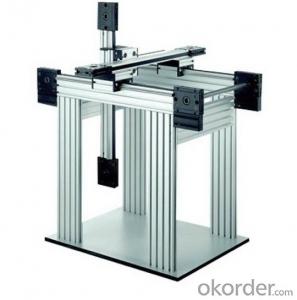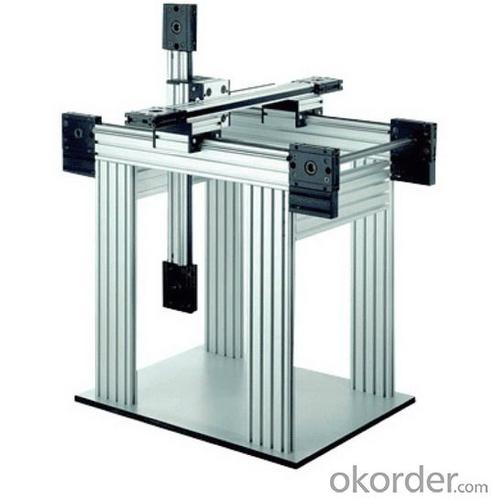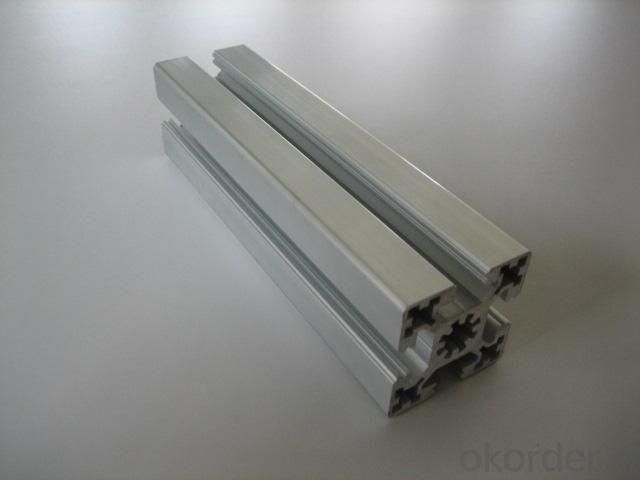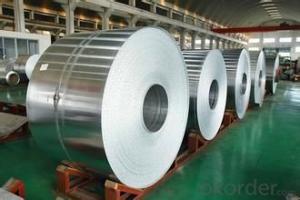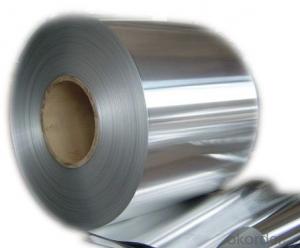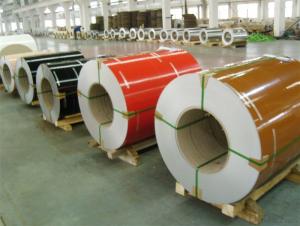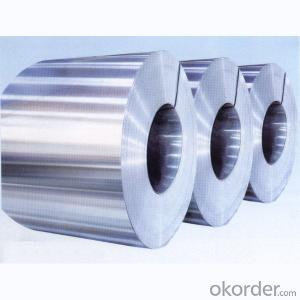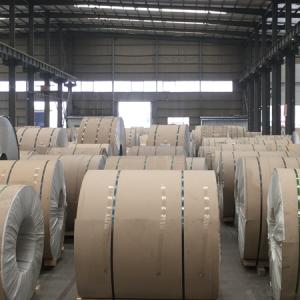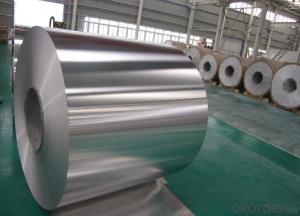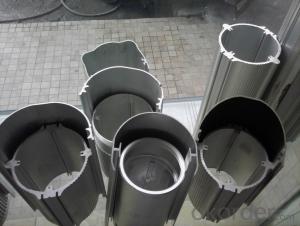1060 Aluminum Coils Wholesale - Aluminium Profile 180T Best Price and Good Quality
- Loading Port:
- Shanghai
- Payment Terms:
- TT OR LC
- Min Order Qty:
- 15 m.t.
- Supply Capability:
- 2000 m.t./month
OKorder Service Pledge
OKorder Financial Service
You Might Also Like
Specification
Structure of Aluminium Profile 180T Best Price and Good Quality Description:
Coated aluminum coil/sheet are of a wide range of colors, which gives wonderful appearance no matter in residential and commercial constructions of great exhibition centers.
The coated aluminum coil/sheet have been widely used in the fields of construction and decoration( garage doors, ceiling etc.), electronic appliances, lighting decoration, air-condition air pipes, sandwich panels and drainages etc.
Main Features of the Aluminium Profile 180T Best Price and Good Quality:
1) High flexibility
2) Impact resistance
3) Excellent weather-proof durability
4) Anti-ultraviolet
5) High erosion resist
Images of the Aluminium Profile 180T Best Price and Good Quality:
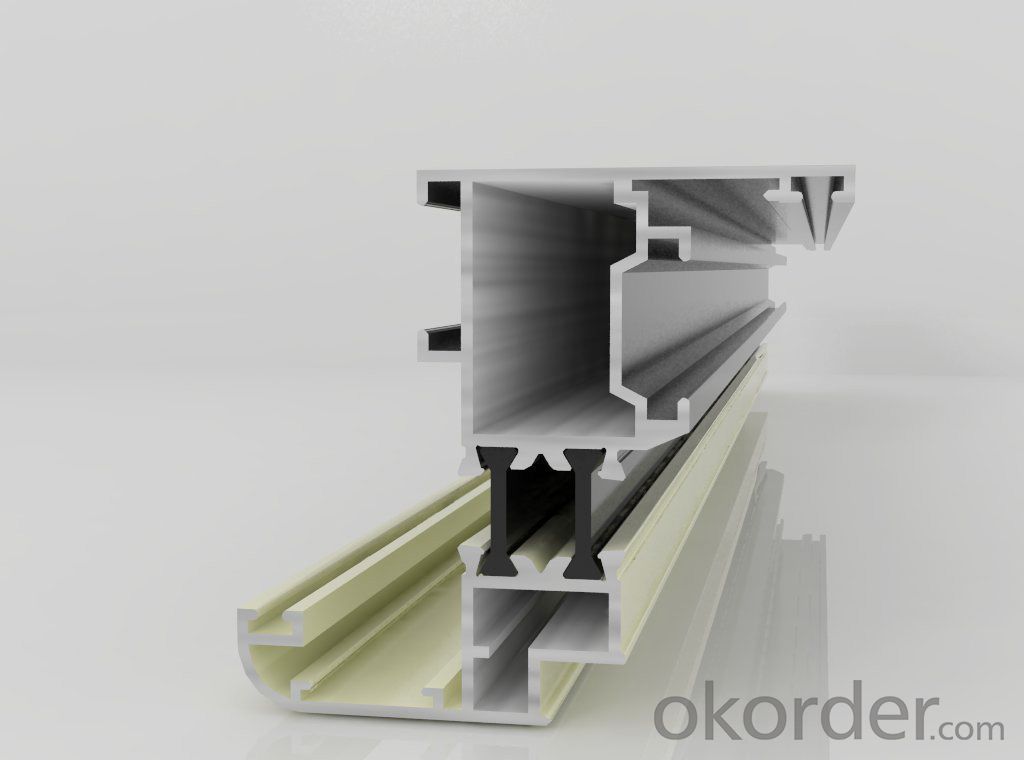
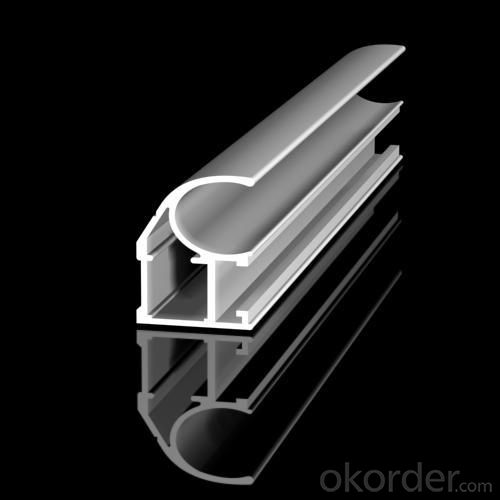
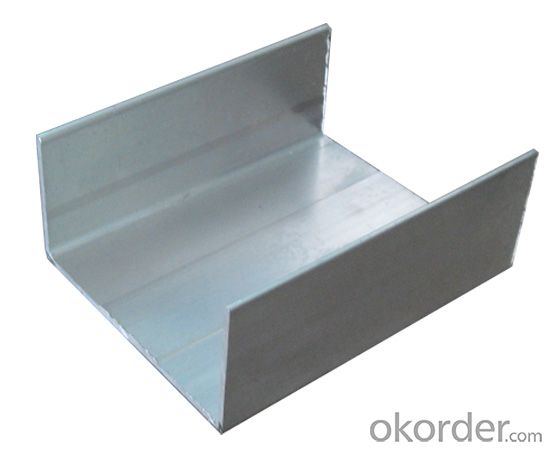
Aluminium Profile 180T Best Price and Good Quality Specification:
Alloy | A1100,A3003,A1050,A8011 etc |
Temper | H16,H18,H24 |
Thickness | From 0.024mm to 1.2mm |
Width | Standard width:1240mm |
Special width:1300mm,1520mm,1570mm,1595mm | |
Diameter | Standard dia:1200mm |
Interior dia:150mm,405mm,505mm | |
Weight | 2.5 T/coil,3.0 T/coil |
Coating | PE, PVDF, AC |
Surface | Embossed, mill finish, coated |
Color | AS to code RAL |
Gloss | 10-90%(EN ISO-2813:1994) |
Coating Thickness | PE: more than 18 micron |
PVDF: more than 25 micron | |
Coating Hardness (pencil resistance) | More than 2h |
Coating adhesion | 5J(EN ISO-2409:1994) |
Impact Resistance | No peeling or cracking(50 kg/cm,ASTMD-2794:1993) |
Flexibility (T-bend) | 2T |
MEK resistance | More than 100 |
FAQ:
a.What is monthly capacity
---CNBM is one stated own company and our monthly capacity is about 2000tons.
b. Now which countries do you export your goods?
---Now we export to South East Asia,Africa, North America,South America ect.
- Q: How do you store aluminum coils to prevent damage?
- To store aluminum coils and prevent damage, there are several important steps you can follow. First, it is crucial to ensure that the storage area is clean, dry, and free from any moisture or humidity. This is because moisture can lead to corrosion and damage the aluminum coils over time. Second, you should store the coils in an upright position, preferably on pallets or racks, to prevent any bending or warping. By keeping them upright, you minimize the risk of coil deformation and maintain their shape for future use. Furthermore, it is advisable to cover the coils with a protective material such as plastic or tarp to shield them from dust, dirt, and other contaminants. This protective layer will also isolate the coils from any potential chemical exposure that could accelerate corrosion. Additionally, it is essential to handle the coils with care during storage, as rough handling or dropping them can lead to dents or scratches. To prevent any physical damage, use appropriate lifting equipment, such as forklifts or cranes, when moving or stacking the coils. Lastly, it is recommended to periodically inspect the coils during storage to ensure there are no signs of damage or corrosion. Regular visual checks will allow you to identify any issues early on and take necessary steps to prevent further damage. By following these storage practices, you can effectively prevent damage to aluminum coils, ensuring their longevity and preserving their quality for future use.
- Q: im looking for a bat but i dont know what to get wood or aluminum what is harder wood or aluminum ?? what would be better for hitting hard balls with ( or maybe people ) haha no im joking i need help !!!!
- aluminum is, and hardness isnt everything.. theres bat speed, vibration differences after the swing, wider sweet spots, and durability. aluminum bats dominate wood bats in all these catergories
- Q: This question asks for a comparison of the pros and cons associated with the use of aluminum coils.
- <p>Aluminum coils offer several advantages, including high thermal conductivity, which makes them efficient for heat transfer applications. They are lightweight and corrosion-resistant, which enhances their durability and reduces maintenance needs. Additionally, aluminum is a cost-effective material compared to other metals like copper. However, there are disadvantages such as lower strength compared to steel, which may limit its use in high-stress applications. Aluminum also has a higher coefficient of expansion, which can lead to issues in precision applications. Lastly, while it is recyclable, the recycling process can be energy-intensive.</p>
- Q: Can aluminum coils be used in explosive environments?
- No, aluminum coils cannot be used in explosive environments as aluminum is not intrinsically safe and can ignite or cause sparks in the presence of flammable or explosive gases.
- Q: This question asks for methods to protect aluminum coils from damage during storage and transportation.
- <p>To prevent damage to your aluminum coil during storage or transportation, follow these guidelines: Store the coils in a dry and clean environment to prevent moisture and dirt accumulation. Ensure that the storage area is well-ventilated to avoid condensation. Use appropriate padding or separators between coils to prevent scratching or denting. Handle the coils with care, using proper lifting equipment to avoid dropping or mishandling. Secure the coils during transportation to prevent movement that could lead to damage. Keep the coils away from corrosive substances and extreme temperatures. Regularly inspect the coils for any signs of damage and address any issues promptly.</p>
- Q: What are the common sizes of aluminum coils available?
- The common sizes of aluminum coils available vary depending on the specific application and industry. However, some standard sizes include widths ranging from 36 inches (91 cm) to 72 inches (183 cm) and thicknesses between 0.019 inches (0.048 cm) to 0.125 inches (0.318 cm). These sizes are commonly used in industries such as construction, automotive, and manufacturing.
- Q: How are aluminum coils tested for quality control?
- Aluminum coils undergo several tests during quality control to ensure their reliability and performance. One of the primary tests is the dimensional inspection, where the physical dimensions of the coils are measured and compared against the specifications provided by the manufacturer. This helps to identify any discrepancies in length, width, thickness, or diameter. Another crucial test is the visual inspection, where the coils are thoroughly examined for any surface defects such as scratches, dents, or discoloration. This visual examination is essential to ensure that the coils meet the required aesthetic standards. To evaluate the mechanical properties, various mechanical tests are conducted. Tensile strength tests are performed to measure the resistance of the aluminum coils to breaking under tension. This test helps in determining the durability and strength of the coils. Additionally, hardness tests are carried out to assess the coil's resistance to indentation or deformation. The hardness values are compared against the predetermined standards to verify if the coils meet the necessary criteria. Further tests include corrosion resistance testing, where the coils are exposed to harsh environments or corrosive substances to assess their ability to withstand corrosion over time. This test is crucial as aluminum is often used in applications where it may come into contact with corrosive elements. Electrical conductivity tests are conducted to ensure the proper functioning of the coils in electrical applications. The conductivity is measured and compared with the required specifications to guarantee that the coils possess the desired electrical characteristics. In addition to these tests, other factors like chemical composition analysis, surface roughness evaluation, and coating adhesion tests may also be performed depending on the specific requirements of the aluminum coils. Overall, through these comprehensive quality control tests, manufacturers can ensure that aluminum coils meet the necessary standards, guaranteeing their quality, performance, and reliability in various applications.
- Q: This question asks for methods to clean an aluminum coil, which involves understanding the appropriate cleaning materials and techniques to avoid damaging the aluminum.
- <p>To clean an aluminum coil, start by using a soft cloth or sponge dampened with warm water and mild dish soap. Gently wipe the coil to remove dirt and grime. Avoid abrasive materials or harsh chemicals that could scratch the surface. After cleaning, rinse the coil thoroughly with clean water to remove any soap residue. Dry the coil completely to prevent water spots or corrosion. For stubborn stains, consider using a specialized aluminum cleaner, but always follow the manufacturer's instructions and test on a small area first.</p>
- Q: How do aluminum coils perform in high-pressure applications?
- Aluminum coils generally perform well in high-pressure applications due to their inherent strength and durability. The high-pressure environment requires materials that can withstand the force and maintain their structural integrity without deformation or failure. Aluminum coils are known for their excellent tensile strength, which allows them to handle high-pressure conditions without buckling or collapsing. Furthermore, aluminum is highly resistant to corrosion, making it ideal for applications where exposure to moisture or harsh chemicals is a concern. This corrosion resistance ensures that the coils will not deteriorate or weaken over time, even under high-pressure conditions. In addition to their mechanical properties, aluminum coils also possess excellent thermal conductivity. This property allows them to efficiently transfer heat away from the high-pressure environment, thereby preventing overheating and maintaining stable operating conditions. The thermal conductivity of aluminum also aids in rapid heat dissipation, enhancing the overall performance of the coils in high-pressure applications. Moreover, aluminum coils are lightweight compared to other metals, making them easier to handle and install in high-pressure systems. Their lightweight nature also reduces the overall weight of the system, which can have advantages in terms of energy consumption and transportation costs. However, it is important to note that the specific performance of aluminum coils in high-pressure applications may vary depending on the grade and thickness of the aluminum used. It is crucial to select the appropriate aluminum alloy and gauge based on the specific requirements of the application to ensure optimal performance and longevity.
- Q: How are aluminum coils inspected for surface defects?
- Aluminum coils are inspected for surface defects using various techniques, including visual inspection, automated systems, and non-destructive testing methods. Visual inspection involves trained personnel examining the coils for any visible defects such as scratches, dents, or discoloration. Automated systems, equipped with advanced cameras, are used to detect surface defects by capturing high-resolution images and analyzing them for any abnormalities. Additionally, non-destructive testing methods like eddy current testing or ultrasonic testing are employed to identify hidden defects or irregularities that cannot be detected by visual inspection alone. These methods help ensure that aluminum coils meet the required quality standards before being used in various industries.
Send your message to us
1060 Aluminum Coils Wholesale - Aluminium Profile 180T Best Price and Good Quality
- Loading Port:
- Shanghai
- Payment Terms:
- TT OR LC
- Min Order Qty:
- 15 m.t.
- Supply Capability:
- 2000 m.t./month
OKorder Service Pledge
OKorder Financial Service
Similar products
Hot products
Hot Searches
Related keywords
